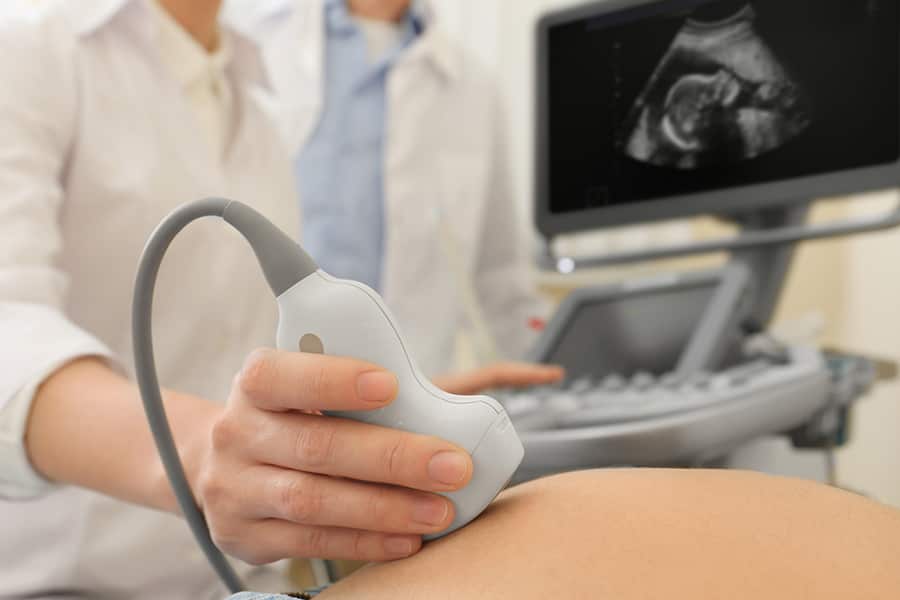Tests and screenings are an important part of good prenatal care. These tests can help identify many potential health issues in the mother or fetus, as well as assess the risk of certain genetic disorders. In this article, we will explore some of the prenatal tests and screenings available.
Ultrasound
Ultrasound is a frequently used prenatal examination that uses high-frequency sound waves to create images of the fetus, the uterus, and the placenta. Ultrasound examinations can accurately determine the gestational age of the fetus, assess fetal growth and development, and identify many potential abnormalities. One of the more common reasons pregnant women undergo an ultrasound exam is to see if they are having a girl or a boy.

Non-invasive prenatal testing (NIPT)
Non-invasive prenatal testing (NIPT) is a blood test that can detect certain chromosomal abnormalities in the fetus, such as Down syndrome, without the need for a more invasive procedure. NIPT is typically offered to women who are at increased risk of delivering a baby with a chromosomal abnormality.
Chorionic villus sampling (CVS)
Chorionic villus sampling (CVS) is an invasive prenatal procedure that involves taking a small piece of the placenta to screen for chromosomal abnormalities or genetic disorders. Some genetic disorders that are able to be detected by CVS are cystic fibrosis and sickle cell anemia.
Amniocentesis
Amniocentesis is an invasive prenatal procedure that involves taking a small sample of amniotic fluid through a long small bore needle to screen for chromosomal abnormalities or genetic disorders in the baby. Amniocentesis is often offered to women who are at an increased risk of having a baby with a chromosomal abnormality or genetic disorder. It is not uncommon for women of an older maternal age to have amniocentesis recommended for prenatal genetic screening.

Maternal serum screening
Maternal serum screening is a blood test that assesses the risk of certain chromosomal abnormalities or genetic disorders in the fetus. Maternal serum screening is typically offered to all pregnant women, regardless of their risk level.
Group B streptococcus (GBS) screening
Group B streptococcus (GBS) screening is a test that assesses whether a pregnant woman is a carrier of GBS, which is a type of bacteria that can cause serious infections in newborns. GBS screening is typically offered to women between 35 and 37 weeks of pregnancy.
Glucose screening
Glucose screening is a test that is used to determine the mother’s blood sugar level during pregnancy. Gestational diabetes is a type of diabetes that develops in the mother during pregnancy. Glucose screening is typically offered between 24 and 28 weeks of pregnancy and if indicated the test is repeated throughout the pregnancy. An elevated maternal blood glucose level during pregnancy may result in a larger than normal newborn baby.

Cervical length measurement
Cervical length measurement is a test that assesses the length of the cervix to identify any potential risk of preterm labor. Cervical length measurement is typically offered to women who carry an increased risk of preterm labor.
It’s important to note that not all prenatal tests and screenings are necessary for every pregnancy. The type and frequency of tests and screenings recommended may vary depending on a woman’s age, medical history, and risk factors.
In conclusion, tests and screenings during pregnancy play an important role in prenatal care. These tests can help identify many potential health issues in the mother or fetus, as well as assess the risk of certain genetic disorders. It is important for expectant mothers to discuss prenatal testing and screening options with their healthcare provider to determine which tests are appropriate for their pregnancy.
The information is presented to be a general guide to present information about prenatal screening tests. It is for informational purposes only. The information provided is not intended to be the only information available concerning prenatal screening tests. The material provided is not expected to be a substitute for advice or information from your physician or health care provider.
If you have any questions, concerns, apprehensions, unease, or worry about your fetus’ development contact your health care provider immediately.


